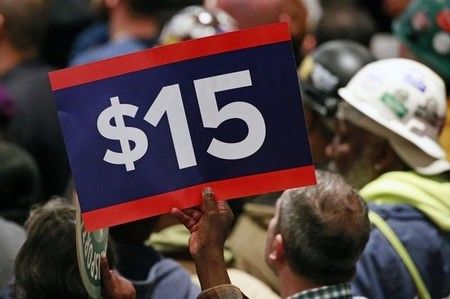Advertisement
Studies Reveal Who Benefits — and Who Doesn’t — Under President Trump’s Tax Plan
By Jason Owen
Advertisement - Continue reading below

One of President Donald Trump’s signature campaign promises was reforming the tax system. Now, Republicans in the House have unveiled their tax overhaul, which they say will benefit Americans across the board. However, recent looks at the tax plan are painting a much different picture of who benefits the most under the Trump tax plan.
House Republicans and President Trump claim that with a simplified tax code and lower rates, it will free up the wealthy to reinvest in growing their businesses and pass those gains onto workers in the form of higher wages.
From Fox Business:
”The Tax Cuts and Jobs Act will deliver real relief for people in the middle [and] people who are also striving to get there,” House Speaker Paul Ryan (R-Wis.) said during a press conference.
“The GOP predicts that if its bill is enacted, the average middle-income family of four would receive a tax cut worth $1,182.”
As the GOP “predicts” its own (favorable) outcome, outside economists are predicting the bill will benefit mostly those at the top. It could also hurt some middle-class families, they say, and will balloon the deficit.
The non-partisan Tax Policy Center (TPC) estimates that within a decade, 79.7 percent of the gains would go solely to the top one percent, with the top .1 percent seeing a full 40 percent of those savings.
Republicans have touted that their plan saves middle-class families from paying more, but as Forbes notes, “60 percent of families earning $150,000 to $300,000 and nearly 30 percent of those earning $50,000 to $150,000 would pay more under the Trump plan than under current law. As a group, those in the 80th to 95th income percentile would see small net tax increases.”
Business Insider notes, according to the GOP talking point, that a family of four with a household income of $60,000 would save $1,182 per month (averaging out to less than $100 per month).
The median household income in 2016 was $59,063, according to U.S. Census Bureau data.
Economist Justin Wolfers, a professor of economics at the University of Michigan and a Senior Fellow at the Peterson Institute for International Economics, tweeted findings from NYU School of Law’s David Kamin that acknowledged that low- and middle-class Americans would see savings initially under the Trump tax plan, but middle-class families would see a tax hike by 2024.
That middle class tax cut that the GOP is advertising?
It's temporary. It goes away, and becomes a tax hike.https://t.co/sLb1vg4nhj pic.twitter.com/XzLKO5awr9— Justin Wolfers (@JustinWolfers) November 3, 2017
Former presidential candidate and Independent Senator Bernie Sanders chimed in on the Trump tax plan, reiterating the TPC’s findings in a simplified chart.
On top of these findings, many on both sides of the aisle have decried the budget-busting side of the tax plan, which some estimates say will increase the deficit by an additional $2 trillion over the next decade.
Other reviews of the Trump tax plan show that some common deductions for average Americans will be eliminated, including allowing teachers to write off supplies they buy for the classroom and repealing a deduction of losses from natural disasters.
House Republicans have also drawn criticism after the release of their bill by claiming in a fact sheet that Americans earning over $400,000 per year are considered low- and middle-class.
Detractors of the bill have questioned Republicans on their insistence that lowering the overall tax rate for top earners will spur job growth, pointing to the Bush-era tax cuts from 2001 and 2003 that failed to boost job growth or wages for middle-income workers.
A recent poll showed that 60 percent of Americans think the Trump tax plan disproportionately favors the wealthy, while just 17 percent believe it will benefit income classes equally.
As the Tax Policy Center notes:
“Despite promises from proponents of the tax cuts, evidence suggests that they did not improve economic growth or pay for themselves, but instead ballooned deficits and debt and contributed to a rise in income inequality.”
With so recent an example to draw from, it’s difficult to see how Republicans will persuade the average American that their new proposal will largely be in their best interests.
What do you think? Will the Trump tax plan jolt the economy? Or will it largely benefit the wealthy and do little for average Americans?
Advertisement - Continue reading below









